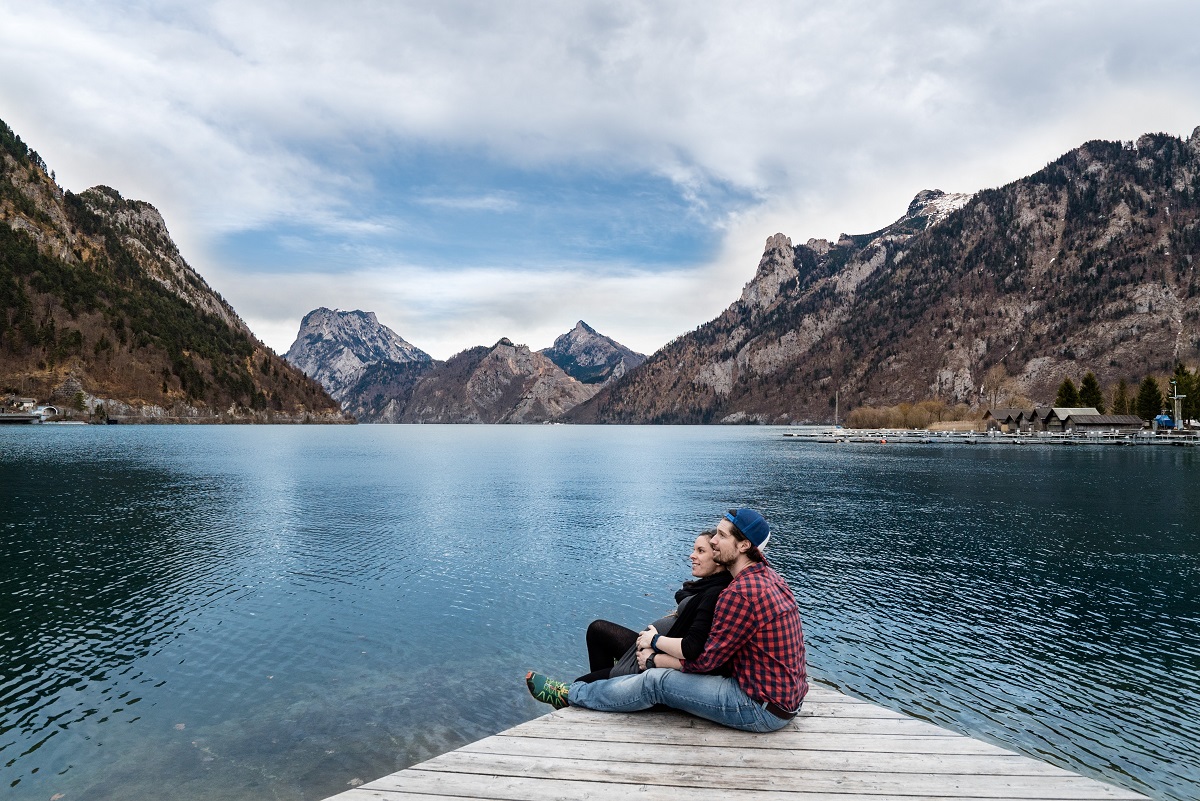students, workers & explorers going to New Zealand & travelling from New Zealand.

Answer our simple questions to get started


InsurancesafeNZ provides three different travel insurance policy categories: Studentsafe, Workersafe and Explorersafe. This means that if you’re travelling to New Zealand, travelling within New Zealand or temporarily leaving New Zealand, we have something to offer you. Use the Policy Finder to narrow your policy search and get a quote. Our website is also packed with great information on how to keep safe, how to make the most of your time abroad and how to understand your travel insurance policy better. If you need further assistance contact one of our friendly staff on our toll-free number 0800 486 004 (within NZ) or +64 9 488 1638 (outside of NZ).
Studying in New Zealand is an adventure of a lifetime, which is why a range of unexpected bumps and accidents are covered under Studentsafe policies.
But when it comes to certain medical conditions, you may not be automatically covered. That’s why it’s important to disclose any medical conditions you want cover for.
The term “Pre-existing Medical Conditions” is commonly used when applying for insurance. This refers to your medical history and the full definition can be found on
Being in good health is key to embarking on an exciting study adventure in New Zealand.
Anyone planning to study in New Zealand for more than three months is required to apply for a student visa.
When applying for a new or to renew a visa, you may need to provide New Zealand Immigration with medical information to demonstrate an acceptable level of health.
Studentsafe policies do not cover medical costs for your visa application.
Studentsafe policies are desig
Your wellbeing is important which is why Studentsafe provides cover for medical and related expenses.
But before you make an appointment for check-ups related to your health, it’s important to understand what is and isn’t covered under your policy.
Studentsafe does not provide cover for certain medical tests listed as Exclusions under Section 1: Medical and Related Expenses as set out below:
9. Health screening, medical and dentals reviews or vaccinations.
&
Staying healthy plays a vital role in making the most of your study adventure. If you have been prescribed medication and are looking to make a claim, it’s important to understand what is and isn’t covered under your policy.
Just because a certain medication has been prescribed by your doctor, it does not mean that it is automatically covered.
Studentsafe does not provide cover for certain medical tests listed as Exclusions u
Keeping mentally well is important to make the most of your study adventure.
While studying away from home is an exciting life experience, there are times you may feel overwhelmed or experience loneliness, stress, anxiety and depression.
During these challenging times, it’s important to recognise the pressures you may be under, whether it’s adjusting to a new environment or the added load of assignments and exams.
If you need professional help, you can feel assured knowi
If you’re reading this article, you’ve already made a sensible choice. If you’re in a new relationship, or thinking about starting to date, it’s important to think about how you can ensure that you and your partner stay safe when you’re having a little extra ‘fun’.
So read on to learn more about what steps you should be taking to keep safe. The consequences can range from irritating to life-threatening – and that isn’t a gamble anyone should take.
Any new culture will have customs that you will start to learn very quickly as soon as you arrive! To give you a head start on your time in New Zealand, we’ve got a few key bits of information about Kiwi culture – and a whole lot of detail about speaking like a local!
When you’re walking the streets of New Zealand – or even when you’re still at the airport and navigating escalators – it’s good to remember that we drive on the left, not the righ
Unless you’re really into skiing, winter in New Zealand isn’t really the most exciting time of year. It’s not cold enough for there to be pretty snow falling in the cities, but it’s still cold enough that you don’t want to spend time outside unless you have to. Instead of snow, we mostly get rain and wind. It’s certainly not terrible – but it does give you a good excuse to go somewhere sunny if you have the time and budge
Adjusting to a new workplace comes with challenges wherever you are in the world – and if you're in a new country as well as a new workplace, those changes can be even more extreme. New Zealand culture is quite friendly and informal, and this extends to many workplaces. But it can be difficult at times to understand where the limit is – how casual is too casual and what will make you look unprofessional? How formal is too formal and what will make you look too unapproachable?
Some of
Everyone experiences periods of stress in certain situations – perhaps exams are coming up, or you’ve spent a little more than you intended to at dinner and pay day is still a couple of days away. That’s a normal part of life, and most of the time, it goes away fairly quickly when the source of the stress comes and goes. You pass your exam, you check your bank account and ther
A healthy worker is a more productive worker. It seems like an obvious statement to make, but in today’s working world, many workers feel that they have keep pushing and pushing to get results – even at the expense of their health and wellbeing. Workplaces need to be more supportive of their staff to make sure that they feel they are able to take time to get healthy if they are unwell, or to express their concerns if they are overburdened with stress.
Ask any adult what their student years were like, and there will almost always be two things that everyone has in common – lots of fun, and hardly any money! But if you’re new to a city or even a country, it can be hard to know where to begin when it comes to finding social activities that you can do on a student budget.
To help you out, we’ve rounded up some of our top tips for free and cheap things to do in New Zealand’s main student cities and towns to get you started!
Flatting doesn’t have to be expensive. There are a number of ways you can set up a flat on a budget without losing out on quality and the occasional treat. To make sure that you get the best experience possible no matter what your income may be, we’ve brought together a few of our favourite tips and t
When you’re away from your family and community that feeling of homesickness can feel very overwhelming. Making friends and keeping busy are the easiest ways to prevent homesickness – but you need to put the effort in. If you sit at your computer looking over your soci
When you’re planning adventures overseas, there’s so much excitement that it can be easy to forget about the parts of travel that are a little less glamorous. Organising travel insurance may not be as thrilling as planning your routes and researching the major attraction
For many people, the shift from university study to the working world is one of the biggest changes they will ever experience. Life until that point is focused on formal education – sitting in class, doing homework, taking notes… and then all of a sudden, it’s time to step out into
No matter where you go in the world, someone will tell you to keep safe and often there’s a good reason for it. When travelling or moving somewhere new it can be tempting to step outside of your comfort zone and give everything a go. While this is a great attitude it’s important to explore your new surrou
Relocating to a new country for work is hugely exciting. Getting a new job and home and navigating new cultures, practices and languages is an immersive experience and can be incredibly consuming.
An “out with the old, in with the new” approach can be tempting – after all, you’re making a
In general, the younger your children are the easier it will be for them to pick u
For many of us, our pets are part of the family. For expats intending to move overseas with their pet, planning and research before the move is essential. It is crucial to ensure the welfare of your beloved pet during and after transit, and that regulation surrounding the importation and exportation of pets is complied with.
Research animal import regulations for your new country of residence, to determine what conditions must be met for your pet to be allowed en
If you’re reading this article, you’ve already made a sensible choice. If you’re in a new relationship, or thinking about starting to date, it’s important to think about how you can ensure that you and your partner stay safe when you’re having a little extra ‘fun’.
So read on to learn more about what steps you should be taking to keep safe. The consequences can range from irritating to life-threatening – and that isn’t a gamble anyone should take.
STIs, or sexually transmitted infections, are something that anyone having any kind of sex needs to be careful to avoid. Whether you are having sex with someone of another gender or the same gender as you, you are at risk. Whether you are having oral sex, vaginal sex or anal sex, you are at risk. Basically, if you are making contact with someone else’s genitals, you need to be aware of ways to protect yourself from STIs.
You may have also heard them referred to as STDs (sexually transmitted diseases) or VDs (venereal diseases) – they are all names for the same groups of diseases. Some can be cured, some can’t. Some present differently in women than they do in men. Some are caused by a bacterium, others by a virus or parasite. All of them should be avoided – and there are plenty of ways to do that.

The most common STIs in New Zealand are chlamydia, genital warts, genital herpes and gonorrhoea.
Chlamydia is a bacterial infection that can be passed from one partner to another through vaginal, oral and anal sex – and people with chlamydia who get pregnant can pass the infection on to their baby during birth. Many people don’t show symptoms straight away, but when they do, people of all genders can experience pain when urinating and discharge from the vagina or penis. Female bodied people may also experience bleeding when they aren’t on their period, pain in the lower belly and pain during sex.
But that’s not the end of it. If you don’t seek treatment, chlamydia can have serious effects on your health. In female-bodied people, the disease can spread to the uterus and fallopian tubes, causing pelvic inflammatory disease – which can in turn cause infertility through blocked tubes. Male-bodied people risk becoming infertile when the infection spreads from the penis to the testicles.
Genital warts are caused by a specific kind of HPV, the human papillomavirus. Male-bodied people often won’t show any symptoms at all, while in female-bodied people it can take weeks or months before the small, itchy lumps appear.
HPV is particularly concerning as it can lead to changes in the cells of your reproductive organs that lead to cancer. There is a vaccine available to help protect people from HPV, but as with any vaccination, it’s only preventative – it cannot magically fix things when you have already caught HPV.

Genital herpes is caused by the same virus that causes cold sores around the mouth. As with many STIs, you may go for a long time without showing symptoms, or in fact you may never have symptoms. But if you do, you’ll experience painful sores or blisters. You can transmit the virus to others at any time, not only when displaying symptoms – although you are at your most infectious around the time you have an outbreak of the sores.
Gonorrhoea is another bacterial infection that can affect the genitals, rectum or throat. Like chlamydia and genital herpes, it can also spread to a baby during birth – and like all of the STIs listed here, people will not always show symptoms. Female-bodied people may experience vaginal or rectal discharge, bleeding between periods, pain during sex and lower belly pain, while male-bodied people may experience pain while urinating, discharge from the penis or rectum and testicular pain.
There are many ongoing complications that gonorrhoea can cause, with pelvic inflammatory disease in female-bodied people and inflammation of the prostate or urethra in male-bodied people being the most common. Gonorrhoea tends to be antibiotic-resistant, so treatment often requires multiple different antibiotics.
Remember that these are just the four most common STIs in New Zealand – others like HIV/AIDS, syphilis and trichomoniasis do all exist here, but they aren’t seen as frequently.
The only way to be 100% safe from STIs is to not have sex with someone – and as mentioned already, that includes all kinds of sexual contact, not just vaginal sex. However, that’s obviously not always a preferred choice!
Your best option to stay safe is to use a condom, or an internal condom. You are probably familiar with condoms if you’ve had some kind of sexual health education in school. A condom is a thin barrier that is rolled onto a hard penis before sexual activity. An internal condom is a special pouch that is worn inside the vagina – there is a flexible ring at each end, with one end open and one end closed. Condoms are usually made from rubber, and internal condoms are made from nitrile, the same material as medical gloves.
Condoms can be used with water-based lubricants, while internal condoms can be used with both water-based and oil-based lubricants – and they are also suitable for people with latex allergies, which traditional condoms are not. However, traditional condoms are cheaper and can be bought in many more places, from pharmacies to supermarkets and even in vending machines at nightclubs.
An unbroken rubber condom will ensure that viruses like HIV can’t be transmitted. They also greatly reduce the risk of catching bacterial STIs like chlamydia and gonorrhoea – and will also reduce the risk of genital herpes and genital warts. However, these last two can also infect skin around the genitals that isn’t protected by the condom.
It’s also important to remember that condoms are only effective when they are used properly, and when they aren’t broken or otherwise not suitable for use. They also have a use-by date for a reason, as rubber loses its strength with age and means the condom is more likely to break. They can also lose their strength when stored somewhere too warm, like in a wallet that’s always in your pocket.

As you’ll know from just reading about different common STIs, you can be infected and not show any symptoms. If you’ve had sex with a new partner in the past six months, or if there’s any chance that your partner has had sex with someone else, we recommend you go to your doctor or to a family planning clinic and get a test done. Do be aware that while many clinics will advertise free sexual healthcare for people under 22, this does only apply to NZ residents, so usual international visitor fees will apply. It is important to note that these visits are only covered under your insurance policy if you are presenting eligible symptoms. However, you cannot put a price on safety!
For many heterosexual couples, especially those in the early stages of their relationship, safe sex also means sex that prevents pregnancy. Contraception is a way of preventing pregnancy by preventing the female egg from being fertilised by the male sperm. Some people also refer to it as birth control.
Condoms are one method of contraception, but to be more safe, it is wise to combine condom use with another form of contraception. At the present time, those options are all only available for female-bodied people, though there is always research going on to try to create a male contraceptive option.
The most common, and usually most affordable method is the combined oral contraceptive pill – often just called ‘the pill’. You take one pill a day, ideally at the same time each day, and with perfect usage, it can be up to 99% effective. Normally, it’s 92% effective, which takes into account the fact that none of us are perfect all the time.
There is another pill option, the progestogen-only pill, or ‘mini-pill’. It’s useful for people who cannot take the regular pill for whatever reason – though it does need to be taken even more carefully – at the precise same time every day, with only a three-hour window of time.
Another kind of hormonal contraception that you may hear about is the Depo Provera shot, an injection that needs to be given every three months – and when you stay on schedule, it’s over 99% successful.
For the most dependable contraception available, the options are IUDs (intra uterine devices) and implants. IUDs come in two main forms – either copper, or hormonal. They are both small t-shaped objects that are inserted into your uterus/womb by a medical professional, and they stop sperm from reaching the egg. Both copper and hormonal IUDs are at least 99% effective – the difference between the two is mostly down to side effects.
It’s also important to note that some female-bodied people will be on some form of contraception for reasons other than preventing pregnancy – some people who are taking the pill, for example, may not even be sexually active, but instead take the pill to make their period more manageable.

Another aspect of safety to consider when it comes to sex and relationships, beyond health and medical aspects, is emotional and physical safety – ensuring that both people involved are enthusiastically ready to have sex with each other. Nobody should ever make you feel as though you don’t have a choice. Even if you think you’d like to have sex with this person someday doesn’t mean you have to say yes to them today if you don’t feel ready.
Consent is the important thing – and ongoing consent. Just because someone has said yes to one thing doesn’t mean that they are consenting to everything else that comes after. Just because someone has said yes to sex with a condom doesn’t mean that they have consented to sex without a condom. Sex where both partners are excited, enthusiastic, and fully comfortable is much more enjoyable for both people involved. So get out there and be a respectful, careful human being, and you’ll have a much better time.